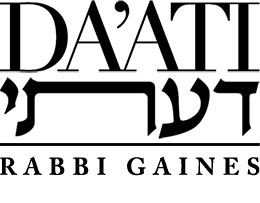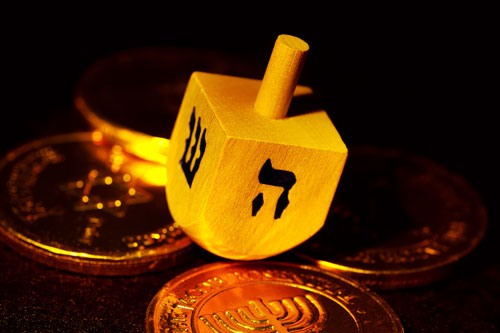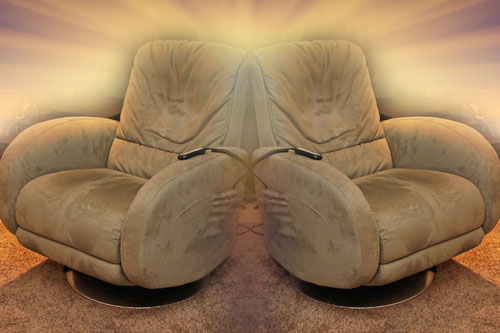 Passover is again upon us and as we enter these seven holy days devoted to our physical and spiritual liberation, we reflect on the meaning - the true meaning - of freedom. In the wake of the Corona pandemic (and the subsequent quarantine we all have been forced to endure), the question about freedom has never been more important. What is the Torah’s definition of freedom? Perhaps its true identity can be gleaned via a deeper understanding of the Korban Pesach (Hebrew for “Passover Sacrifice”). The first appearance of the Pascal lamb is in the Biblical book of Exodus (Parshat Bo). There, the Jewish people are commanded, “Take for yourselves a lamb.....one per each household.” Question, why, specifically, a lamb? Explains, Rabbi Tzvi Elimelech of Dinov (Derech Pikudecha Korban Pesach), the Egyptians were naturalists and believed that the powers of nature reigned supreme. In particular, the magicians and soothsayers of Egypt were especially expert in charting, interpreting, and reading the stars (it was they, after all, who predicted the birth of Moses - the redeemer of Israel - as explained in the Midrash). Explains Rabbi Elimelech, the Egyptians believed that Aries (the lamb) held the greatest power because it was “first born” of the 12 heavenly constellations (the sign corresponding to the Hebrew month of Nissan, the first of the 12 months of the year). Hence, by seizing a lamb and devoting it to Divine service (via the paschal sacrifice), the Jewish people demonstrated that even the stars - natural phenomena - are under God’s providence. In other words, when we are connected to God, master of all phenomena, we are free to write an original destiny that no star or planet can determine! In the words of the Talmud, “There is no astrological fortune for Israel” (Tractate Shabbat).
Passover is again upon us and as we enter these seven holy days devoted to our physical and spiritual liberation, we reflect on the meaning - the true meaning - of freedom. In the wake of the Corona pandemic (and the subsequent quarantine we all have been forced to endure), the question about freedom has never been more important. What is the Torah’s definition of freedom? Perhaps its true identity can be gleaned via a deeper understanding of the Korban Pesach (Hebrew for “Passover Sacrifice”). The first appearance of the Pascal lamb is in the Biblical book of Exodus (Parshat Bo). There, the Jewish people are commanded, “Take for yourselves a lamb.....one per each household.” Question, why, specifically, a lamb? Explains, Rabbi Tzvi Elimelech of Dinov (Derech Pikudecha Korban Pesach), the Egyptians were naturalists and believed that the powers of nature reigned supreme. In particular, the magicians and soothsayers of Egypt were especially expert in charting, interpreting, and reading the stars (it was they, after all, who predicted the birth of Moses - the redeemer of Israel - as explained in the Midrash). Explains Rabbi Elimelech, the Egyptians believed that Aries (the lamb) held the greatest power because it was “first born” of the 12 heavenly constellations (the sign corresponding to the Hebrew month of Nissan, the first of the 12 months of the year). Hence, by seizing a lamb and devoting it to Divine service (via the paschal sacrifice), the Jewish people demonstrated that even the stars - natural phenomena - are under God’s providence. In other words, when we are connected to God, master of all phenomena, we are free to write an original destiny that no star or planet can determine! In the words of the Talmud, “There is no astrological fortune for Israel” (Tractate Shabbat).
Perhaps we can now answer our above question, what is freedom? Simply stated, freedom is the ability to “leap above the stars” (“Passover” means “leap” in Hebrew), and write the story the way we see fit. Tap into your soul, the Godliness within (the ultimate meaning of Passover), and no Egypt or Pharaoh will impede your way. May the living God unite the Jewish people together with all humanity under His loving providence. May we transcend our individual and collective Egypt (physical and spiritual limitations), and usher in the era of redemption.
A Happy and Kosher Passover from Rabbi Gaines and the rest of the Da’ati staff.



 The media likes to tout that Israel’s strength, as a democracy, lies in “secularism” not religiosity. Let’s define secularism shall we? “Secularism” can be aptly defined as a disassociation from any one particular religion or philosophy. But here’s the truth, Israel never had secular roots! On the contrary, Israel” (as a nation, people, and philosophical idea) is founded upon the Torah/Biblical premise of God - God as defined in Torah. Let’s explore that a bit deeper. The Jewish definition of God (God as “Creator” as explained at length in Kabbalah) is “Two opposing yet complementary states of existence arising simultaneously.” In other words, the Biblical God allows for alternate or opposing states of existence to manifest simultaneously and harmoniously, e.g. good and evil. This necessary “duality” allows for all the opposing/contrasting experiences that define the human condition, physically and spiritually.
The media likes to tout that Israel’s strength, as a democracy, lies in “secularism” not religiosity. Let’s define secularism shall we? “Secularism” can be aptly defined as a disassociation from any one particular religion or philosophy. But here’s the truth, Israel never had secular roots! On the contrary, Israel” (as a nation, people, and philosophical idea) is founded upon the Torah/Biblical premise of God - God as defined in Torah. Let’s explore that a bit deeper. The Jewish definition of God (God as “Creator” as explained at length in Kabbalah) is “Two opposing yet complementary states of existence arising simultaneously.” In other words, the Biblical God allows for alternate or opposing states of existence to manifest simultaneously and harmoniously, e.g. good and evil. This necessary “duality” allows for all the opposing/contrasting experiences that define the human condition, physically and spiritually.  Society has many colloquialisms. You know, those neat go-to sayings/articulations you use when the situation requires. Similar to Social Media, these “lines of higher reasoning” are not often fact-checked. This leads to a profound misunderstanding of the English language (those heathens), and a plethora of misappropriated words being clumsily showboated with all the grace of a two legged gazelle. Let’s give an example, shall we? Behold the ever popular, “That is just your theory.” Now If what he/she meant to say was, “That is just a your statement that is, as of yet, unproven,” then the correct wording would have been, “That is just your hypothesis.” There is a major (ginormous in the lingo of my 9 year old daughter) difference between hypothesis and theory. Everybody is capable of making a hypothesis. On the other hand, a theory is the very highest prize and is achieved only by the most accomplished! Sorry, the two are not interchangeable.
Society has many colloquialisms. You know, those neat go-to sayings/articulations you use when the situation requires. Similar to Social Media, these “lines of higher reasoning” are not often fact-checked. This leads to a profound misunderstanding of the English language (those heathens), and a plethora of misappropriated words being clumsily showboated with all the grace of a two legged gazelle. Let’s give an example, shall we? Behold the ever popular, “That is just your theory.” Now If what he/she meant to say was, “That is just a your statement that is, as of yet, unproven,” then the correct wording would have been, “That is just your hypothesis.” There is a major (ginormous in the lingo of my 9 year old daughter) difference between hypothesis and theory. Everybody is capable of making a hypothesis. On the other hand, a theory is the very highest prize and is achieved only by the most accomplished! Sorry, the two are not interchangeable.  Chanukah is upon us and in addition to the delectable smell of potato latkas cooking in the kitchen and the beautiful lights of the Chanukiah (Menorah possessing 8 branches) glistening from windows lining the streets, the laughter of children can be heard echoing in the hallowed halls of many a home as they busily spin the 4 sided top we call (in Yiddish) Dreidal. Dreidal (Sevivon in Hebrew) is an ancient game that is simultaneously simple and complex, i.e. simple to learn and play (even a very little child can do it), but complex (profound) in its meaning (even learned scholars contemplate its meaning).
Chanukah is upon us and in addition to the delectable smell of potato latkas cooking in the kitchen and the beautiful lights of the Chanukiah (Menorah possessing 8 branches) glistening from windows lining the streets, the laughter of children can be heard echoing in the hallowed halls of many a home as they busily spin the 4 sided top we call (in Yiddish) Dreidal. Dreidal (Sevivon in Hebrew) is an ancient game that is simultaneously simple and complex, i.e. simple to learn and play (even a very little child can do it), but complex (profound) in its meaning (even learned scholars contemplate its meaning). Kindness comes in many forms, but no matter the chosen expression (the form of kindness one chooses to perform), it all can be classified as one of two types: 1) Revealed kindness or 2) Hidden kindness. Let’s define them. Revealed kindness means “conspicuous,” or, revealed to the eyes of all. Imagine, for example, a man strolling into the City of Hope (hospital specializing in pediatric cancer) and handing the faculty $5,000,000 dollars. I am pretty sure that by dawn, every local news agency would be reporting the benevolent act. And why? Because they were privy to it - they witnessed the giver give his gift. Now what if that same kindhearted gentleman placed the $5,000,000 in a briefcase and had it dropped off by a middleman (he never appears on the scene); would the news run to report it? Well, yes, but there would be no person/benefactor to whom they could point their finger - the giver remains hidden.
Kindness comes in many forms, but no matter the chosen expression (the form of kindness one chooses to perform), it all can be classified as one of two types: 1) Revealed kindness or 2) Hidden kindness. Let’s define them. Revealed kindness means “conspicuous,” or, revealed to the eyes of all. Imagine, for example, a man strolling into the City of Hope (hospital specializing in pediatric cancer) and handing the faculty $5,000,000 dollars. I am pretty sure that by dawn, every local news agency would be reporting the benevolent act. And why? Because they were privy to it - they witnessed the giver give his gift. Now what if that same kindhearted gentleman placed the $5,000,000 in a briefcase and had it dropped off by a middleman (he never appears on the scene); would the news run to report it? Well, yes, but there would be no person/benefactor to whom they could point their finger - the giver remains hidden.  “It all started with a chair.” So declared actress Ellen Page in the critically acclaimed film, Juno. Now in Juno, the whole teenage drama (Juno’s pregnancy) unfolds around one irresponsible evening involving, you guessed it, that chair. Was there a message? Most assuredly: don’t leave your teenage daughter unsupervised! As a Rabbi, I must confess, I never thought I would be borrowing a line from a film about teenage angst, but here it goes, “It all started with a chair.” Let me explain.
“It all started with a chair.” So declared actress Ellen Page in the critically acclaimed film, Juno. Now in Juno, the whole teenage drama (Juno’s pregnancy) unfolds around one irresponsible evening involving, you guessed it, that chair. Was there a message? Most assuredly: don’t leave your teenage daughter unsupervised! As a Rabbi, I must confess, I never thought I would be borrowing a line from a film about teenage angst, but here it goes, “It all started with a chair.” Let me explain.

